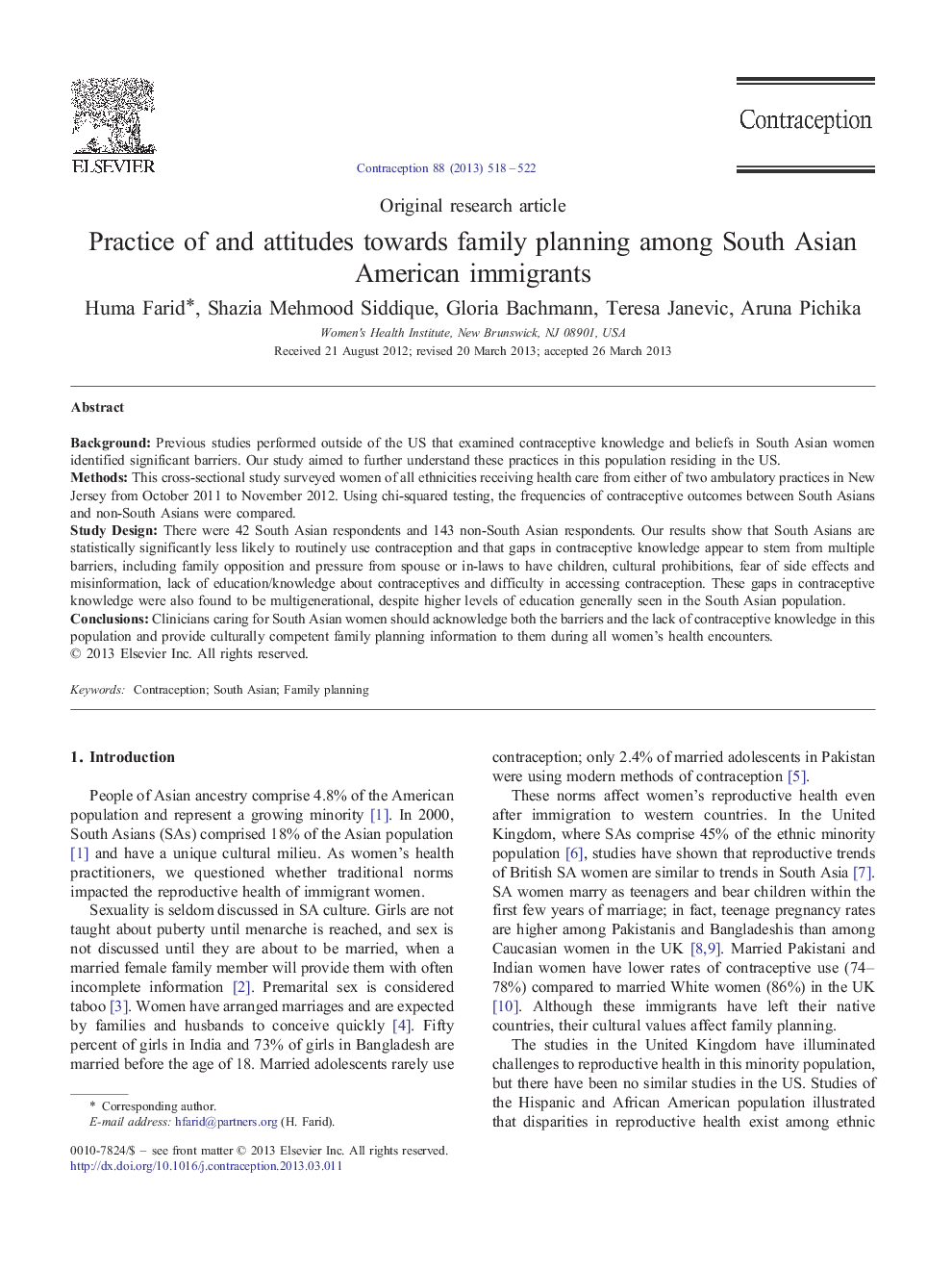| Article ID | Journal | Published Year | Pages | File Type |
|---|---|---|---|---|
| 3913724 | Contraception | 2013 | 5 Pages |
BackgroundPrevious studies performed outside of the US that examined contraceptive knowledge and beliefs in South Asian women identified significant barriers. Our study aimed to further understand these practices in this population residing in the US.MethodsThis cross-sectional study surveyed women of all ethnicities receiving health care from either of two ambulatory practices in New Jersey from October 2011 to November 2012. Using chi-squared testing, the frequencies of contraceptive outcomes between South Asians and non-South Asians were compared.Study DesignThere were 42 South Asian respondents and 143 non-South Asian respondents. Our results show that South Asians are statistically significantly less likely to routinely use contraception and that gaps in contraceptive knowledge appear to stem from multiple barriers, including family opposition and pressure from spouse or in-laws to have children, cultural prohibitions, fear of side effects and misinformation, lack of education/knowledge about contraceptives and difficulty in accessing contraception. These gaps in contraceptive knowledge were also found to be multigenerational, despite higher levels of education generally seen in the South Asian population.ConclusionsClinicians caring for South Asian women should acknowledge both the barriers and the lack of contraceptive knowledge in this population and provide culturally competent family planning information to them during all women's health encounters.
